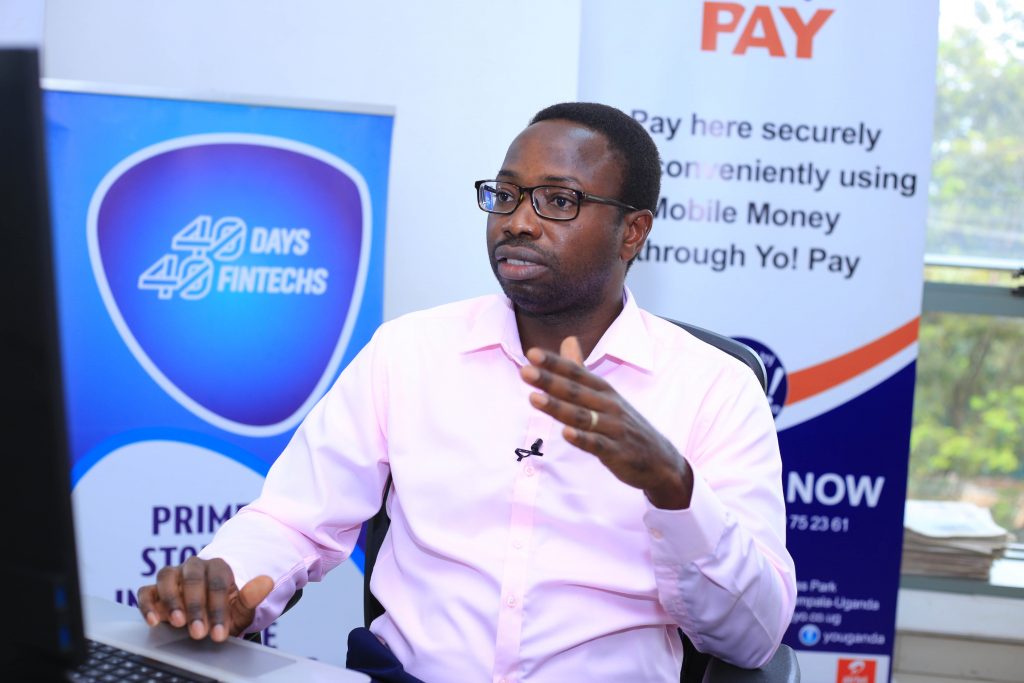By Our writer
Cashless and contactless digital payments are increasingly playing a significant role in ensuring safety, speed, convenience, and seamlessness in business operations globally.
It is this that Yo Uganda Limited, a technology solutions company, is extending to businesses and farmers across Uganda to improve their efficiency.
Established in 2006, Yo Uganda entered the market offering low-cost international calls before venturing into mobile technology to provide Value-Added-Services.
Solutions including mobile money, SMS, Unstructured Supplementary Services Data (USSD) gateways, Interactive Voice Response (IVR), voice solutions, and custom-developed applications, were developed and tailored to customers’ needs.
This followed the launch of MTN mobile money in 2009 and Kenya’s M-Pesa, which had been launched two years before MTN’s mobile money services.
“When mobile money was first launched, the focus was person-to-person and the recipient would immediately go to a nearby agent to withdraw cash. So, we saw an opportunity to enable businesses and other organisations to take advantage of the mobile money service in a way that would enable them to reduce their costs and lower the risks of keeping cash at their premises,” the company’s Managing Director Gerald Begumisa says.
The company later ventured into the mobile payments space, with the launch of Uganda’s first online, publically available mobile payments gateway in 2010, to enable businesses to receive payments from their customers via mobile money as well as make mobile money payments to any mobile money account holder.
Since then, Begumisa says, Yo Uganda has enabled more than 50,000 small medium and large businesses and over 150,000 farmers integrate digital payments into their day-to-day operations and lives.
Begumisa explains that while mobile money was already popular by 2010, there was still a big gap especially in rural areas where farmers were skeptical about adopting digital finance but it has since converted many.

Its Digital Payment Acceptance solution facilitates businesses to transition and to accept digital payments for their goods and services while the Bulk Digital Payment Disbursement solution enables various players, both for-profit and non-profit, transition to digital disbursement of funds such as salaries and vendor payments.
Its Integrating Financial Institutions with Mobile Money Networks solution provides an integration service that allows seamless transfer of funds between financial institutions and Mobile Money Networks to enable a bank account holder to transfer funds from their bank account directly to their mobile phone and vice versa.
Though not yet where they would want the industry to be, Begumisa says Uganda’s Fintech story is taking a good shape with time, with a generally improved market place for work, continued advancement and innovation.
He notes that solutions have been developed by various players over the years, beyond the initial focus on payments to various verticals like Insurance and Agri-Tech solutions.
Additionally, he notes that more has been done to improve the general marketplace, especially given the enactment of the National Payments System Act, 2020, which does not only seek to protect the rights and privileges of payments systems and solutions users but also streamline the industry.
40-Days 40-FinTechs initiative
Yo Uganda is among the firms participating in the on-going second edition of the 40-days-40-FinTechs initiative, organized by HiPipo in partnership with Crosslake Tech, ModusBox and Mojaloop Foundation.
Begumisa says the 40-Days 40-FinTechs initiative provides the needed publicity about the available solutions and products, and offers an opportunity to reach out to more stakeholders in government and private sectors to come on board to push the digitization agenda.
The HiPipo CEO Innocent Kawooya says FinTech in Africa offers attractive opportunities and that investors are rightfully picking interest in the various start-ups that are offering a plethora of services, ranging from payments and lending, remittances, cross-border transfers and neobanks, among others.




